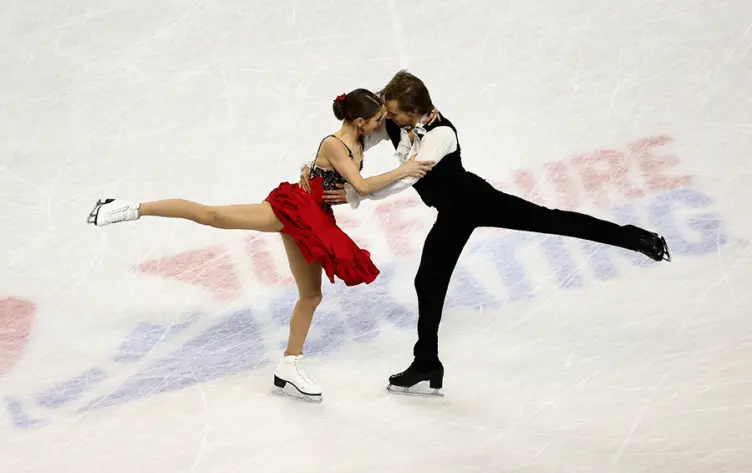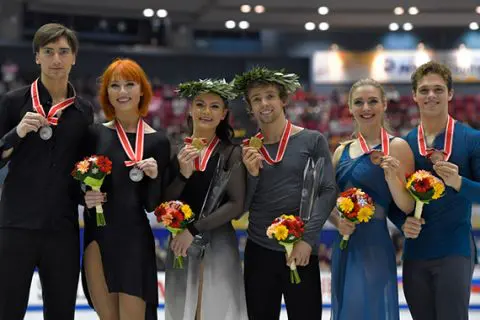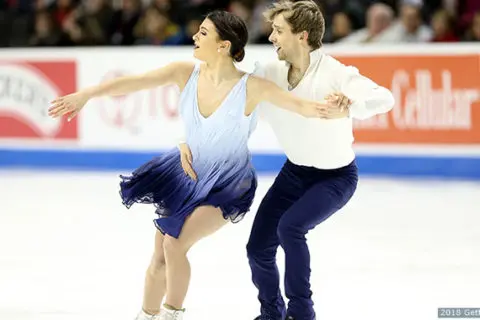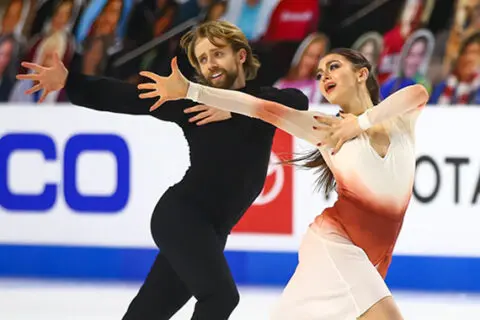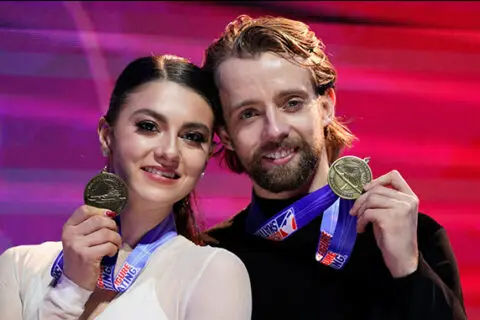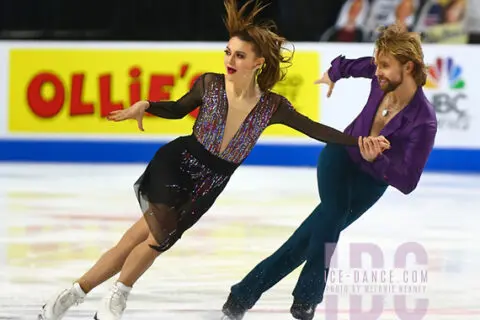There are seasons that can make a career and seasons you just, well, manage. Sometimes they’re one in the same, though Kaitlin Hawayek and Jean-Luc Baker will have to look back from a spot well down the line to know if this is one of those. Right now, with the calendar just turning over to 2016, it’s simply this for the young American ice dancers: “A growing season for us — and maybe a little bit of a rough ride,” said Baker.
“We’ve been managing a lot of different situations,” Hawayek added.
There was the concussion Baker suffered in September, though not from a nasty fall to the ice as you might expect in a swift and slippery sport. “I whacked him with an elbow,” Hawayek confessed.
A couple months later, it was Hawayek who was felled by a nasty case of food poisoning on the eve of the Cup of China competition in Beijing. She gritted through the short dance after having been up all night, vomiting eight times in four hours, but eventually the pair had to withdraw from the second of their two ISU Grand Prix assignments.
And then there are programs in both the short and free dance that have been challenging — for the skaters and sometimes the judges.
“It was a gamble,” Baker acknowledged, “but we decided we wanted to push ourselves.”
There have been rewards — a fourth-place finish at Skate America, and a silver medal at a Challenger Series event in Croatia — with time for more. Up next is the U.S. Figure Skating Championships beginning Jan. 15 in St. Paul, Minn., where a top-three finish can send them to their first world championships as senior competitors — though it’s crowded at the top.
American ice dancers just finished 2-4-6 at the ISU Grand Prix Final in Barcelona last month, and all three pairs —Madison Chock and Evan Bates, Maia and Alex Shibutani, and Madison Hubbell and Zachary Donohue — won gold at different grand prix stops during the season.
That can make it rough on a new pairing; Hawayek and Baker are in just their fourth season together, and their second as seniors. But they also saw French ice dancers Gabriella Papadakis and Guillaume Cizeron leap from 13th in the world to first a year ago in the post-Olympic turnover.
“I think there was some pushing from all the federations to have something new to offer,” said Baker. “People are ready to see new teams at the top.”


